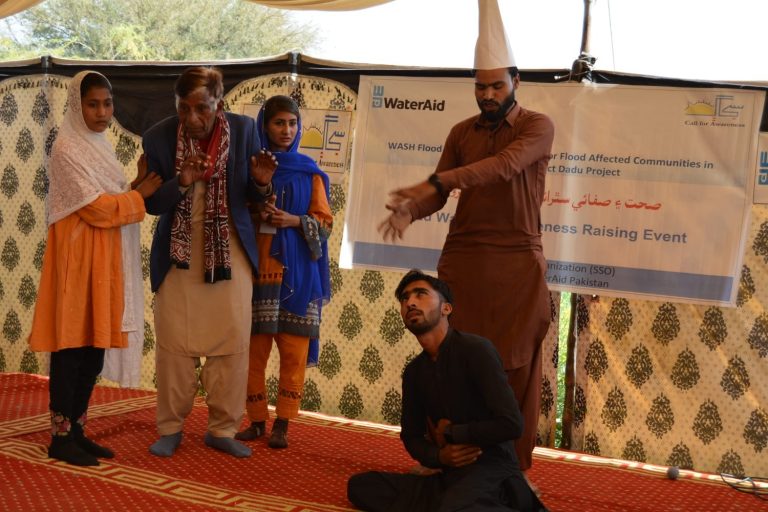
NGO Sujag Sansar uses theater to create awareness among villagers on best hygiene practices to avert outbreak of diseases in Johi Taluka of Dadu district
By Ahmed Khan Khushik
KACHHO, Dadu Sindh
Sujag Theater Group of Sujag Sansar Organization (SSO) with support of Water Aid Pakistan is extensively using theater in flood-affected villages and schools to educate the communities on best hygiene practices and check outbreak of the diseases generally caused due to unhygienic conditions.
Mashooque Birahmani, CEO, SSO says that the Theater is an interesting tool to impart awareness even on difficult and complicated themes, and easy to understand. “Theater is useful for educated, semiliterate and unlettered persons. The awareness shared through this tool is understood and retained for longer time. The impact on the audience is highly motivating and is largely practiced by majority of the participants,” he told.
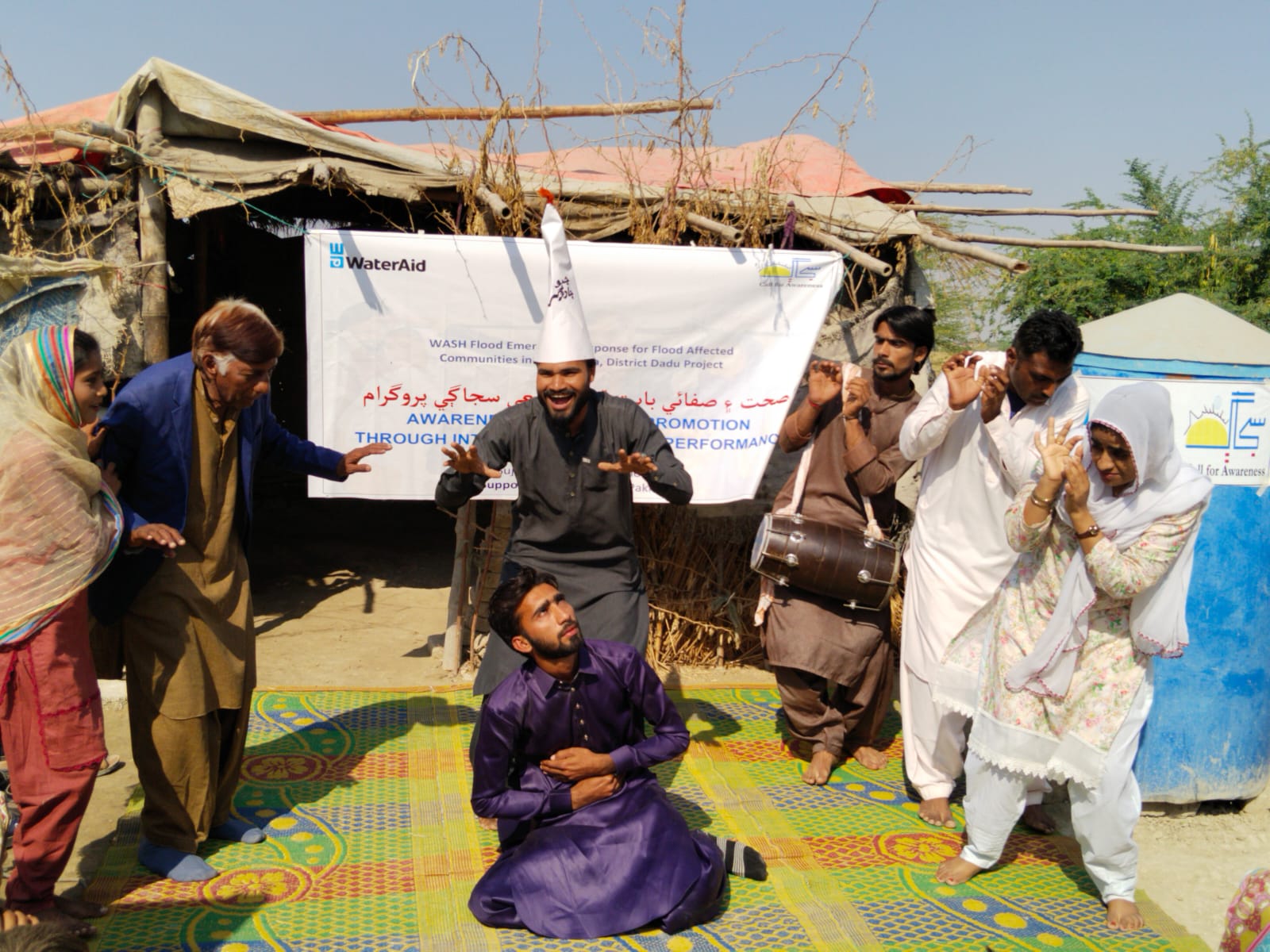 Theater story starts and ends with song containing information on Water, Sanitation and Hygiene (WASH) and Disaster Risk Reduction (DRR). The highly popular character of Juggler is selected which imparts tips on hand washing and other personal hygiene practices in highly interesting and effective way.
Theater story starts and ends with song containing information on Water, Sanitation and Hygiene (WASH) and Disaster Risk Reduction (DRR). The highly popular character of Juggler is selected which imparts tips on hand washing and other personal hygiene practices in highly interesting and effective way.
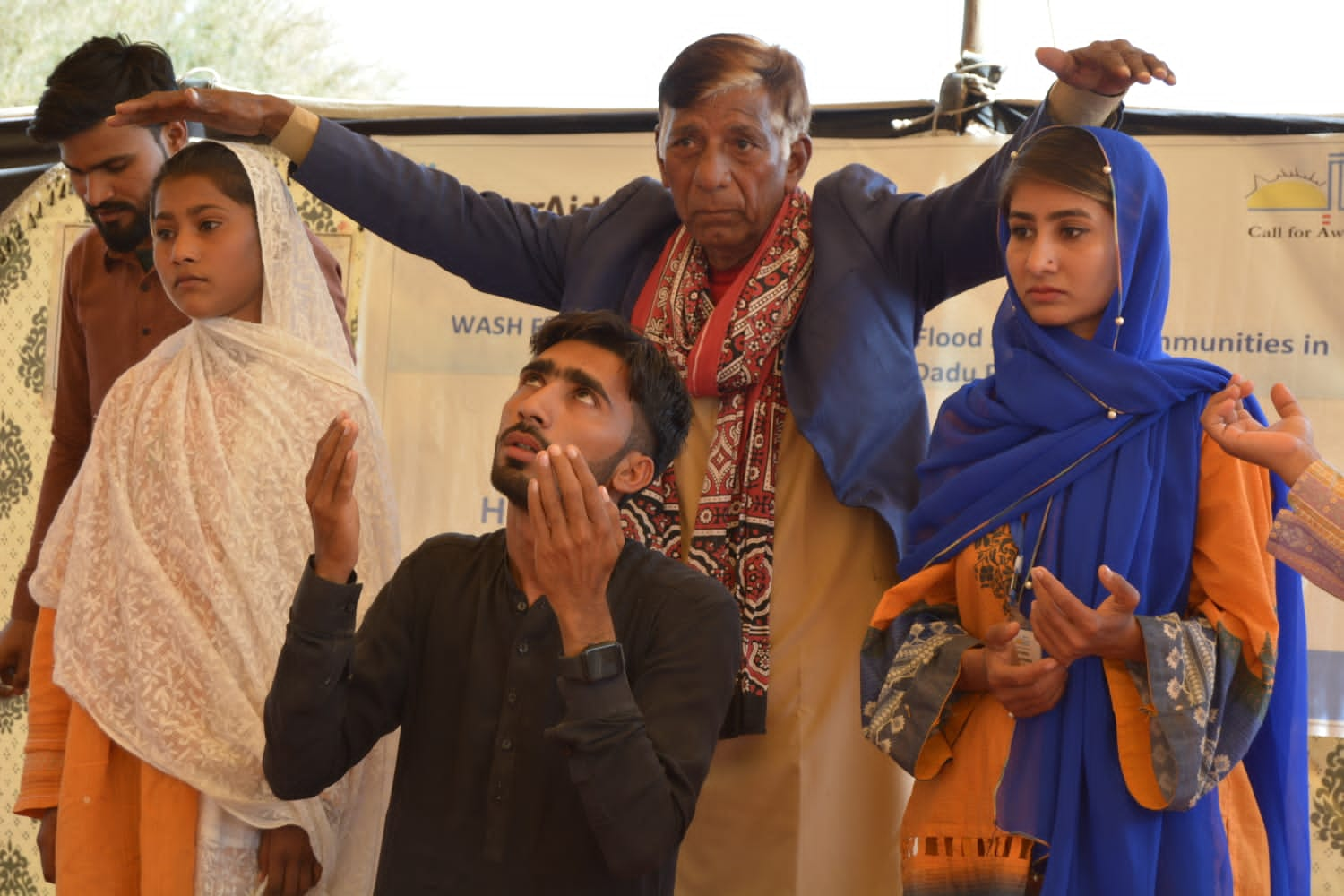 “The experienced male and female charters present information on better use of the WASH facilities in school repaired with support of Water Aid Pakistan. The information on DRR and precautionary measures for impeding Future flood is also shared with the participants,” adds Mashooque Birahmani.
“The experienced male and female charters present information on better use of the WASH facilities in school repaired with support of Water Aid Pakistan. The information on DRR and precautionary measures for impeding Future flood is also shared with the participants,” adds Mashooque Birahmani.
“The theater story is kept interactive from the start to end. The audience largely take part along with characters in demo on personal hygiene and better use of the WASH facilities provided in the schools” maintains Miss Rozeena, an active female member of theater group.
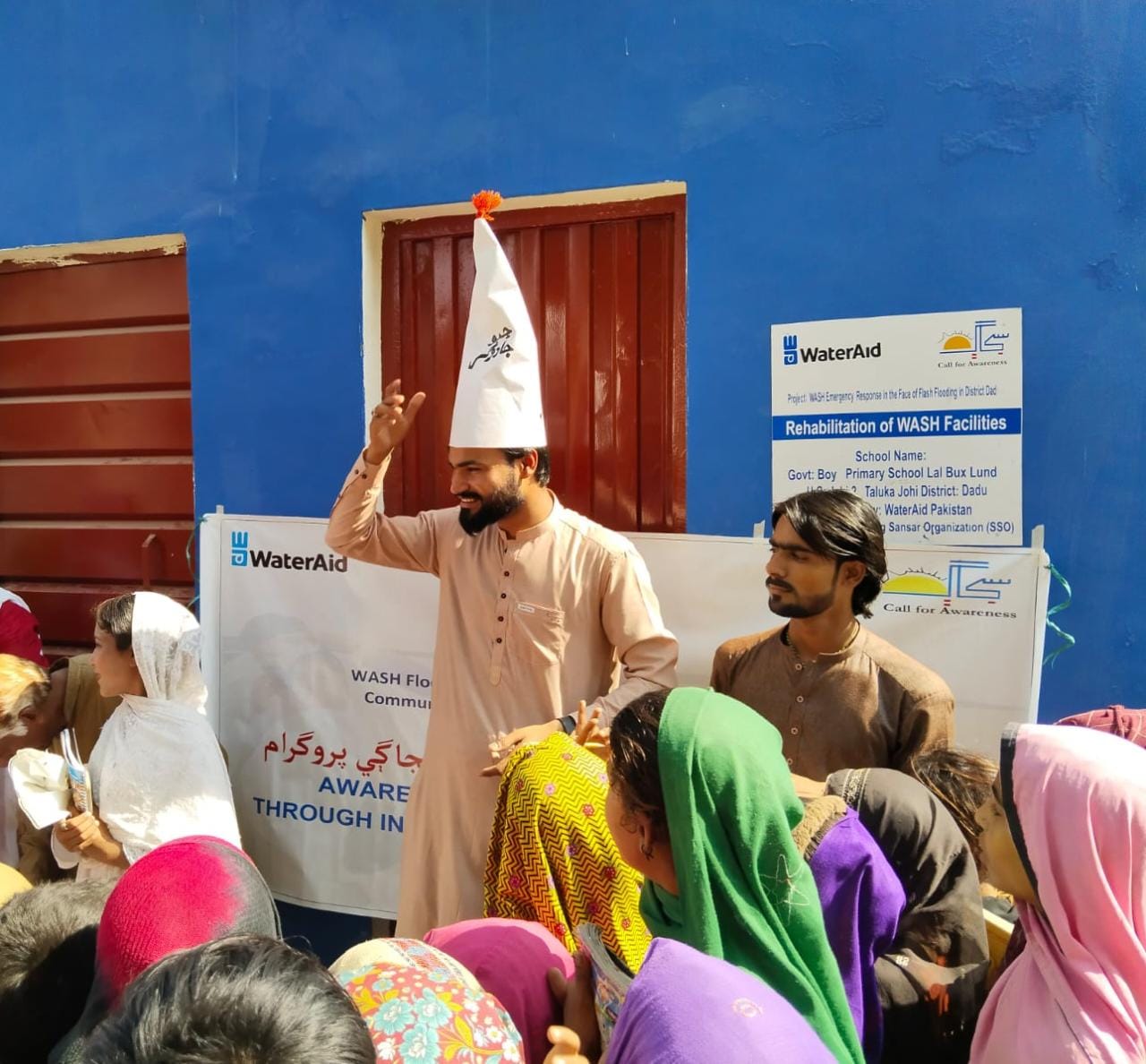 SSO team is making utmost care for including both male and female in the theater activity. In selecting theater team, best efforts are made to keep gender balance. The theater story is liked by persons from all ages and all backgrounds.
SSO team is making utmost care for including both male and female in the theater activity. In selecting theater team, best efforts are made to keep gender balance. The theater story is liked by persons from all ages and all backgrounds.
“The theater wonderfully conveyed the message in minutes which we could not have imparted in months and years,” commented Muhammad Ismail, teacher, Govt. Boys Primary School, Lal Bux Lund.
“I have learnt through magic of juggler in theater story that if I wash my hands with soap properly, I will never fell ill,” said 11-year old girl student Salma, of the local school.
“In our religion Islam, the importance of hygiene is compared with half part of faith and theater has very finely explained it,” said Molvi Talib, prayer leader of the village Ghulam Hussain Gadhi.
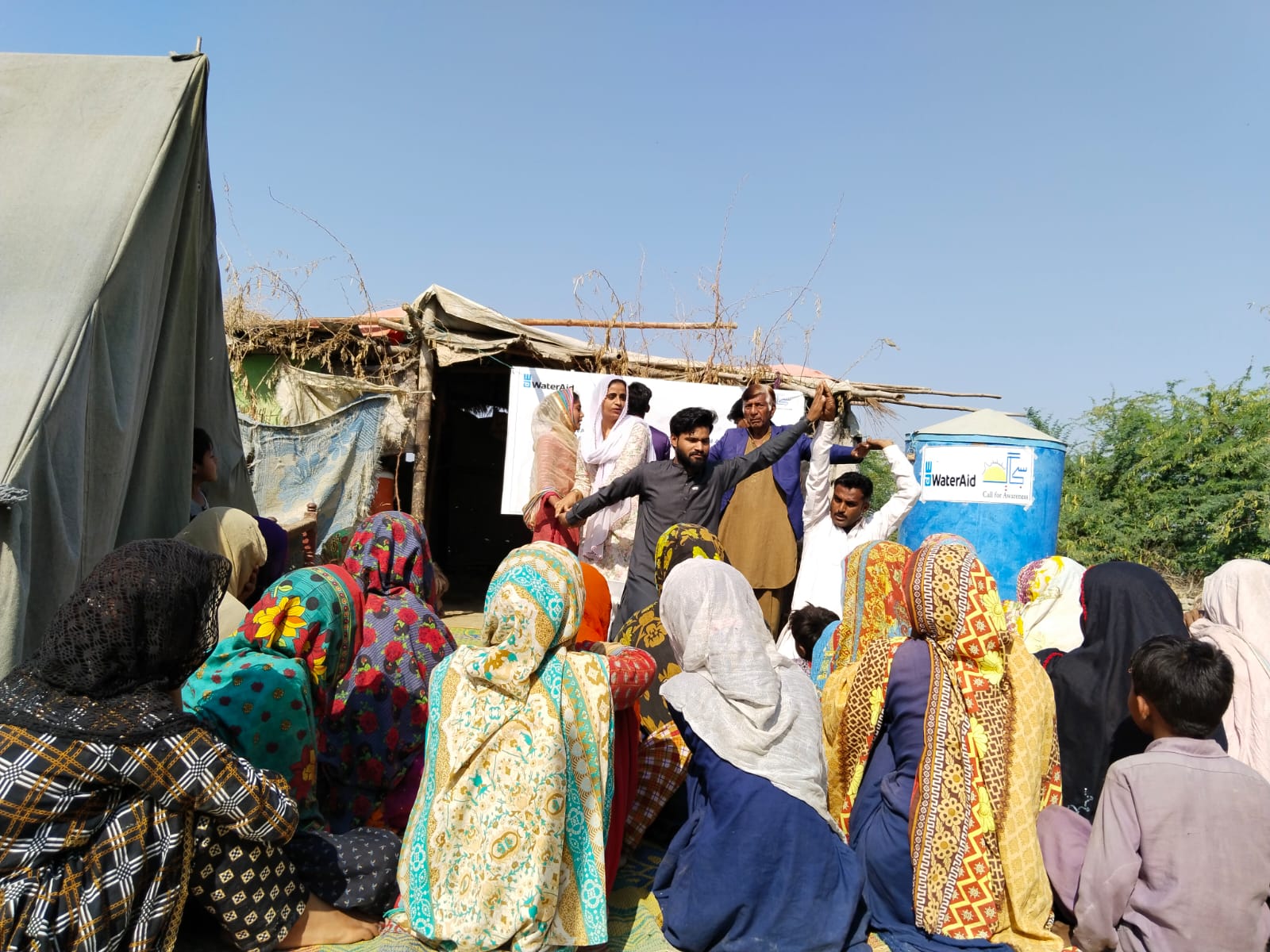 “During theater story, faces of the school children and women were radiated with smiles, besides getting information they enjoyed the theater and for a while it helped the participants to forget horrific memoires of the flood and trails and tribulation they faced during and after the flood.
“During theater story, faces of the school children and women were radiated with smiles, besides getting information they enjoyed the theater and for a while it helped the participants to forget horrific memoires of the flood and trails and tribulation they faced during and after the flood.
During the theater when flood scene with precautionary measure was presented, one boy started crying.
In another school when the same scene was presented, a child put his fingers in his hears not to hear about the flood.
Flood has higher traumatic effect on the population, particularly among children and women
From these observation it became clear that the flood has higher traumatic effect on the population, particularly among children and women.
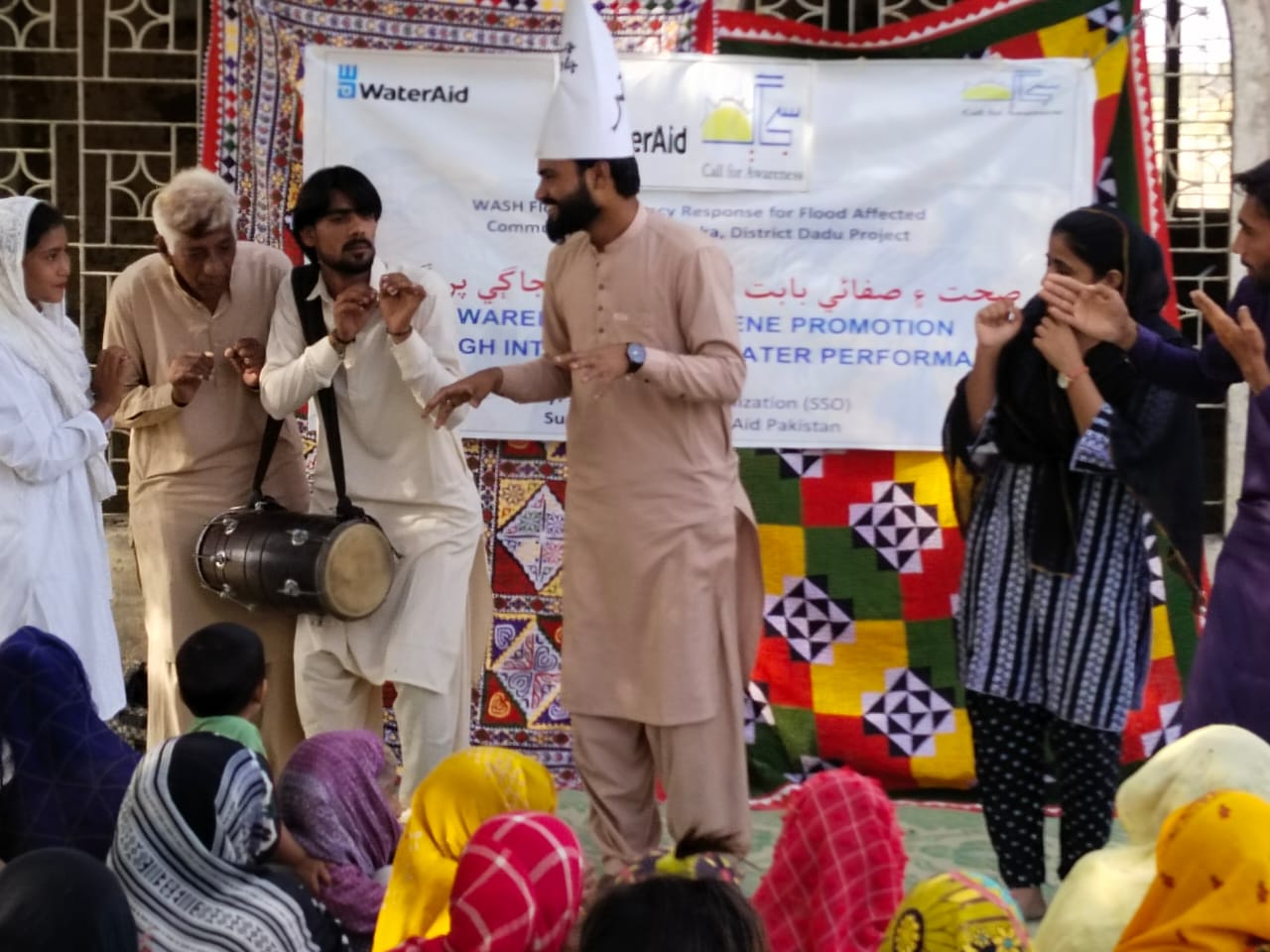 A 32-year old woman shouted when character of theater team warned about coming of heavy rain, saying ‘the same scene has happened with us when heavy rain came. One of our elder cried that this rain would bring heavy flood’. She said that the ‘theater story is our own real story.’
A 32-year old woman shouted when character of theater team warned about coming of heavy rain, saying ‘the same scene has happened with us when heavy rain came. One of our elder cried that this rain would bring heavy flood’. She said that the ‘theater story is our own real story.’
One woman said that “before the arrival of the flood, the media, district administration and rulers repeated that there is no fear of the flood. Thus we didn’t shift our assets to safer places and when contrary to it, the high flood hit us suddenly, we only were able to evacuate our family members. All our valuables, food grains and livestock including my previous Australian breed cow worth Rs.300000 were washed away by sudden flood.”
_____________
Photos of theater story by Ahmed Khan Khushik